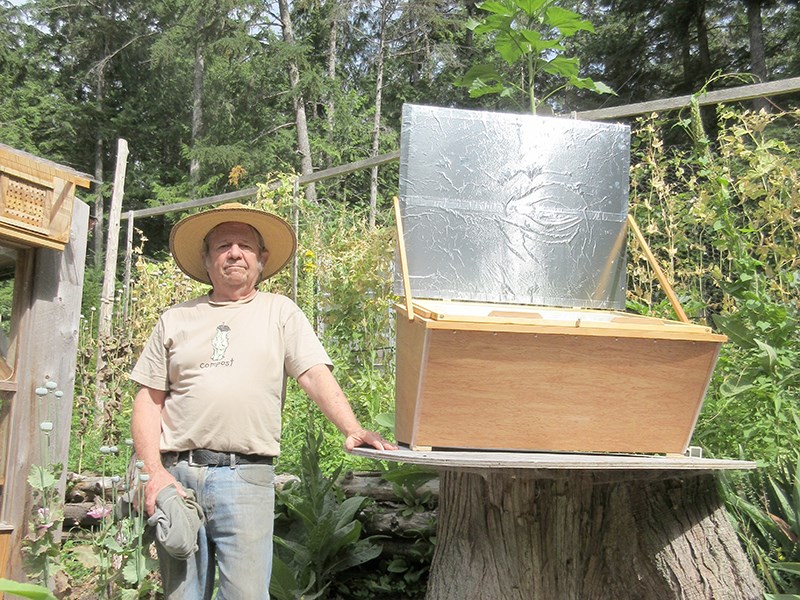At 10 am on a sunny day, Jack Anderson is making dinner in his garden. “This spot is great,” said Anderson. “It starts about 10 in the morning and lasts until five o’clock or so.”
What does? “Well, the sun, of course,” he said.
A Lundie for more than 30 years, Anderson has designed and built solar cookers in his backyard workshop that have been used all over the community and, in fact, all over the world.
Starting in 1984, our region found itself a sister city to the small town of Saint-Marc, Haiti. Centuries of slavery, colonization and exploitation has left Haitian people in poverty. The only available cooking fuel is often charcoal, and its production has left the nation almost completely deforested.
“People in Saint-Marc were spending a third of their incomes on charcoal,” said Anderson. “I went to the library in Powell River and took out a Rodale book on solar energy and there were a couple of designs for solar cookers in there. We built a couple of them and the next year I took one down.”
Over the next several years, Anderson and others raised money from people in Lund and Powell River to partner with friends in Saint-Marc. Solar cookers were designed and made in Saint-Marc, using local materials and craftspeople. Anderson also introduced folks right here at home to the magic of solar cooking.
Anderson gave me my first solar cooker three years ago. I did not get what was so great about it at first, until I started using it. Now, like him, I am hooked.
The flavour and quality of food slow-cooked by the sun is really something special. It saves money and fuel and negates the need to heat up your house on a hot day. Best of all, it can make a big dent in your carbon footprint.
Andersen met his wife, Maryann Lammersen, at a community solar cookout right here in Lund. Together, they founded and directed the Kyoto Twist, a climate-change mitigation initiative. For 10 years they worked with partner groups providing solar cookers designed and built by their local communities in six countries around the world.
These days, Anderson is building solar-cooker kits from a design he first presented at a conference in India in 1997. He provides a few key pieces and the simple plans. For as little as $10, anyone can build these cookers anywhere with easy-to-find materials like cardboard and tinfoil. “Even the simplest one will still boil water,” said Anderson.
Anyone who has ever carried two propane tanks up a rocky Lund driveway in the dark or, worse yet, run out of propane on a holiday can see what an impact cooking with the sun can make.
It is free, it is everywhere and it never runs out. Best of all, you do not have to drive to town for it.



